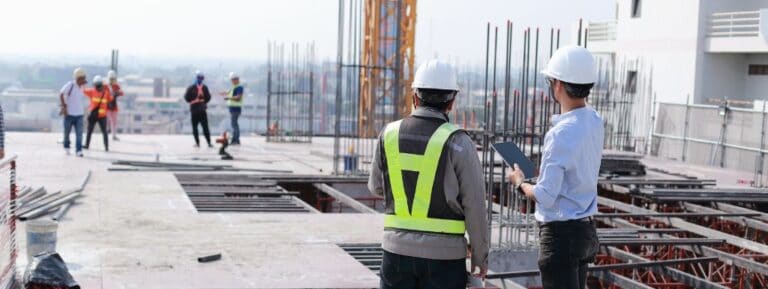Key legislation exists in Queensland that applies to the building industry broadly (e.g. the Building Industry Fairness (Security of Payment) Act 2017 (QLD)), with certain legislation applying to specific building industries (e.g. the Plumbing and Drainage Act 2018 (QLD) for plumbers).
A critical piece of legislation that all builders in QLD should be aware of is the Queensland Building and Construction Commission Act 1991 (Qld) (QBCC Act). The objectives of the QBCC Act are to:
- regulate the building industry;
- provide remedies for defective building work;
- provide support, education, and advice for those who undertake building work and consumers;
- regulate domestic building contracts;
- regulate building products; and
- provide for the proper, efficient, and effective management of the commission in the performance of its functions.
When considering the QBCC Act, you must also consider the Queensland Building and Construction Commission Regulations 2018 (QLD) (QBCC Regulations).
What does the QBCC Act apply to?
In QLD, building work and services related to it are generally covered by the QBCC Act. The QBCC Act regulates many different related subject areas such as building contracts (domestic and commercial head contracts and subcontracts) and licensing requirements.
What is building work under the QBCC Act?
Building work is defined in the QBCC Act and includes:
- the erection or construction of a building; or
- the renovation, alteration, extension, improvement, or repair of a building; or
- the provision of lighting, heating, ventilation, air conditioning, water supply, sewerage, or drainage in connection with a building; or
- any site work (including the construction of retaining structures) related to work of a kind referred to above; or
- the preparation of plans or specifications for the performance of building work; or
- contract administration carried out by a person in relation to the construction of a building designed by the person.
Certain work is excluded as being considered “building work” for the purpose of the QBCC Act, such as:
- work priced at less than $3,300;
- construction, maintenance, or repair of a public road or tunnel for a road, public bikeway or footpath or a tunnel for a public bikeway or footpath;
- construction, maintenance, or repair of a public bridge;
- erection of scaffolding;
- construction work in mining;
- works for curtains, blinds, and internal window shutters, laying carpets, floating floors or vinyl;
- work consisting of earthmoving and excavating; and
- laying of asphalt or bitumen.
Building work services are defined to mean 1 or more of the following regarding building work:
- administration services;
- advisory services;
- management services; and
- supervisory services.
The consequences of performing building work or building work services without the required license under the QBCC Act include penalty provisions and limitations on payment recovery.
Can you contract out of the QBCC Act?
Pursuant to section 108D of the QBCC Act, parties cannot contract out of the QBCC Act. Furthermore, a domestic building contract is void to the extent to which it is contrary to the QBCC Act, purports to annul, exclude or change a provision of the QBCC Act. An agreement (other than a domestic building contract) is void to the extent to which it seeks to exclude, change or restrict a right conferred under the QBCC Act in relation to a domestic building contract.
Requirements under the Act (generally)
The QBCC Act imposes several requirements upon different aspects of the building work, but notably also provides a statutory framework for licensing, variations, and the suspension of works.
A person must not carry out, or undertake to carry out, building work unless the person holds a contractor’s license of the appropriate class under the QBCC Act section 42. For further information regarding licensing requirements under the QBCC Act and the consequences of performing unlicensed building work please read our following article https://rcrlaw.com.au/construction-law-101/.
Building contracts requirements
There are various types of contracts that are used within the construction industry which include:
- QBCC new home contract;
- QBCC contractors’ contracts;
- subcontractor agreement Qld; and
- QBCC new home contract.
The QBCC Act imposes requirements on construction work contracts. These requirements differ under the QBCC Act depending upon if the contract is for commercial or domestic residential purposes. Obligations are imposed upon commercial building contracts within part 4A of the QBCC Act. This part relates to all subcontracts (at all levels) and all head contracts (except for domestic building contracts). The obligations imposed on domestic building contracts are found under schedule 1B of the QBCC Act.
If you require any assistance with understanding your rights and obligations regarding the QBCC Act (or any other state’s building-related legislation) please do not hesitate to contact our dedicated team of construction lawyers online, by email at [email protected] or by phone at (07) 3009 8444.
The blog published by Rostron Carlyle Rojas Lawyers is intended as general information only and is not legal advice on any subject matter. By viewing the blog posts, the reader understands there is no solicitor-client relationship between the reader and the author. The blog should not be used as a substitute for legal advice from a legal practitioner, and readers are urged to consult RCR on any legal queries concerning a specific situation.



